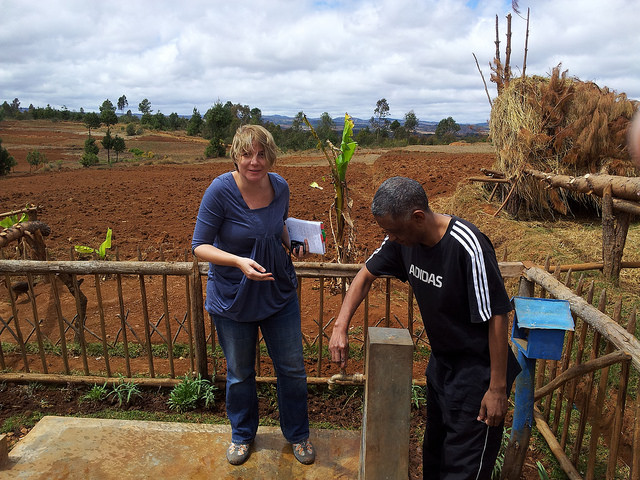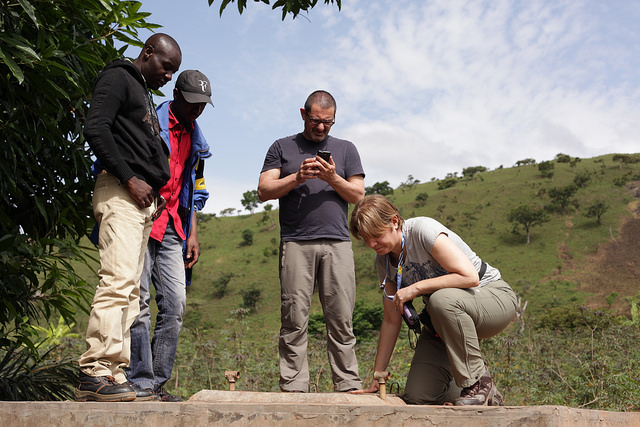Ask any African who lives off the land, and they’ll tell you that water is life. But when the wells and rivers dry up, or become so polluted or full of disease that it kills their children and livestock, water can also be a great cause of sorrow.
Finding her mission in water, former Israeli diplomat Ornit Avidar is taking Israel’s “soft” water technology solutions — decentralized, simple to use and maintain, consuming little energy — and applying them all around Africa. Letters of intent are signed, companies have been chosen and projects are just beginning to roll out.
Avidar built connections and experience as a diplomat for Israel’s Ministry of Industry and Trade, and in high-tech when she was the CEO at Delta Three Israel, the first Internet telephony company later traded on NASDAQ.
Her current company, Waterways, is a channel for Africans to access Israeli technology and make it work for their lives. While she recognizes the importance of non-profits in Africa, she thinks it is time to update the model with sustainable businesses focused on the bottom line.
One of the companies she is working with is SunDWater, which cleans water in off-grid locations using condensation made from solar rays. Africans in remote locations know about the technology and are asking for it, she says.
Where have all the water-tech projects gone?
Around six years ago, Avidar started researching clean-tech and water, and saw that water solutions for rural areas have gone missing.
“When we started looking at the issue of water in rural areas, the most confounding statistics popped up,” she says.

“We found that some 50 percent of water projects in rural areas simply don’t exist after one year. For me, this is dollars going down the drain. If for each million dollars of funding, a year later half of that is gone, then there is no way that we are going to see results. This is not economical and not acceptable, and I thought, what we can do about that?”
She then started devising a comprehensive methodology that can help project managers not only get projects, but keep their projects working and running from day one. “We integrate the appropriate technological solutions with social ones,” she says.
And this is the launching pad she calls Waterways. Her models include VIC, or Village Income Center, which is a way to integrate soft water and support technologies into the livelihoods of villagers.
Life and Water Development Group Cameroon, a non-governmental organization that does water projects with groups like Engineers Without Borders, is cooperating with Waterways on the VIC, which has already started its pilot stage and is in a feasibility study now.
Another key partnership is with Water and Sanitation in Africa (WSA), which has never before partnered with any country outside of Africa. The Pan-African WSA represents 36 governments, and is already doing “fantastic projects,” Avidar says. So far, WSA has worked with five Israeli companies, totaling some $5 billion in transactions.
“They loved our concept in Israel as we went from water scarcity to over-capacity. ‘If you want it too, we can do it,’” Avidar told them.

She has 12 letters of intent signed by various governments in Africa. Israeli companies to be involved in deal flows, in addition to SunDWater, will include water resources management company Tahal and Anyway Solutions, a global leader in providing soil stabilization products to the infrastructure and development sectors.
She recognizes that in Africa, deals proceed more slowly than in the West: “There is a process in Africa. Things take time. You can’t get around it,” she says.
Waterways is based in Shoresh, west of Jerusalem, and employs four people. Founded in 2010, it is bootstrapping its way into Africa. “Obviously, we would love to get funding. Some see the use of soft solutions as not fundable, but that doesn’t deter us. We’re there,” says Avidar.
For more about Waterways, see http://www.water-ws.com/.













